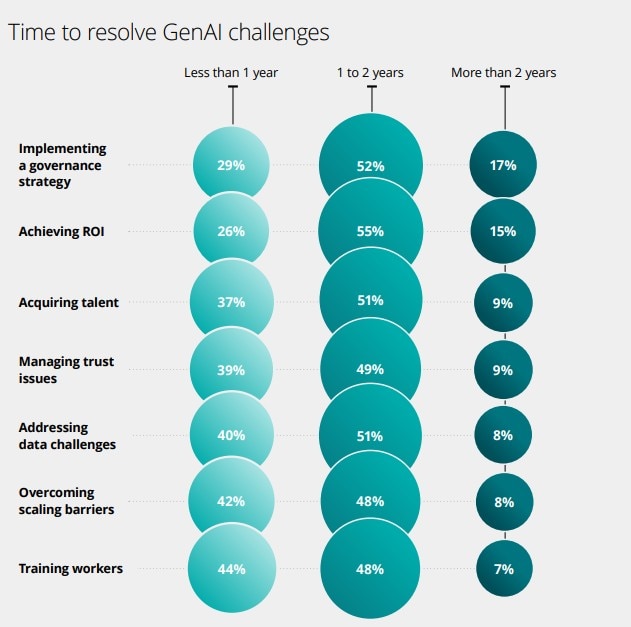Indian businesses are actively exploring Agentic AI, with over 80 percent of organisations experimenting with autonomous agents, according to Deloitte’s latest State of GenAI report (India perspective). The findings signal a transformative shift in AI adoption, with enterprises looking beyond traditional automation towards more intelligent, goal-driven AI systems.
A key trend highlighted in the report is the rising interest in multi-agent workflows. These systems operate with minimal human oversight, using master agents to coordinate a network of goal-oriented sub-agents. Half of the surveyed organisations identified this as a strategic priority, underscoring the growing reliance on AI-powered decision-making.
Automation and AI Investments on the Rise
The report also sheds light on businesses’ increasing commitment to AI-driven automation. Around 70 percent of organisations expressed strong intent to leverage GenAI for streamlining operations, indicating a deepening trust in autonomous systems. Moreover, innovation is accelerating, with 61 percent of companies engaging in over 10 GenAI experiments simultaneously, suggesting a proactive approach to AI integration.
The impact of AI on the software development lifecycle is particularly noteworthy. Nearly 67 percent of firms reported that GenAI had positively influenced all phases of software creation, enhancing efficiency and reducing development cycles. Additionally, AI investments are yielding impressive returns, with 70 percent of respondents stating that their ROI expectations were met or exceeded. Departments such as IT, marketing, operations, and product development are leading the charge in AI adoption.
Challenges in Scaling AI Initiatives
Despite the enthusiasm surrounding Agentic AI, businesses still face hurdles in scaling their projects. While experimentation is widespread, only 29 percent of firms have successfully scaled up at least 30 percent of their AI proofs of concept.

Additionally, GenAI adoption within organisations remains inconsistent, with 61 percent reporting that fewer than 40 percent of employees actively use AI tools. Concerns over AI errors (36 percent), bias and hallucinations (30 percent), and data quality issues (30 percent) are slowing broader deployment. However, businesses remain optimistic, expecting to overcome these obstacles within the next two years.
Moumita Sarker, Partner at Deloitte India, emphasised the importance of structured AI adoption, stating, “As Indian organisations explore Agentic and GenAI, the key to unlocking their potential lies in moving from experimentation to large-scale deployment. Businesses must build trust in AI systems by addressing concerns about errors, bias, and data quality through strong governance.”
Balancing AI Adoption with Long-Term Strategy
One of the critical challenges highlighted in the report is how organisations choose to adopt AI. A majority prefer purchasing AI solutions rather than developing them in-house, which accelerates integration but also introduces risks related to customisation, differentiation, and vendor dependency. This approach could limit businesses’ ability to tailor AI to their specific needs, potentially affecting long-term success.
Financial rigidity also plays a role in AI investment decisions. The report notes that 94 percent of companies would require more than six months to exit an underperforming AI project, while 76 percent anticipate a timeline exceeding a year. This underscores the importance of making informed choices between building custom AI solutions and adopting pre-built tools from the outset.
As AI technology evolves at breakneck speed, businesses also face the challenge of ensuring their AI investments remain relevant. Nearly 28 percent of firms fear their current AI solutions may become obsolete within two years. To mitigate this risk, companies must continuously evaluate their AI strategies to avoid costly replacements and stay ahead in an increasingly competitive landscape.
The rapid exploration of Agentic AI in India is reshaping industries, but success hinges on balancing aggressive experimentation with strategic foresight. Organisations that can navigate AI’s evolving landscape while ensuring adaptability and long-term viability will emerge as industry leaders in the AI-powered future.

